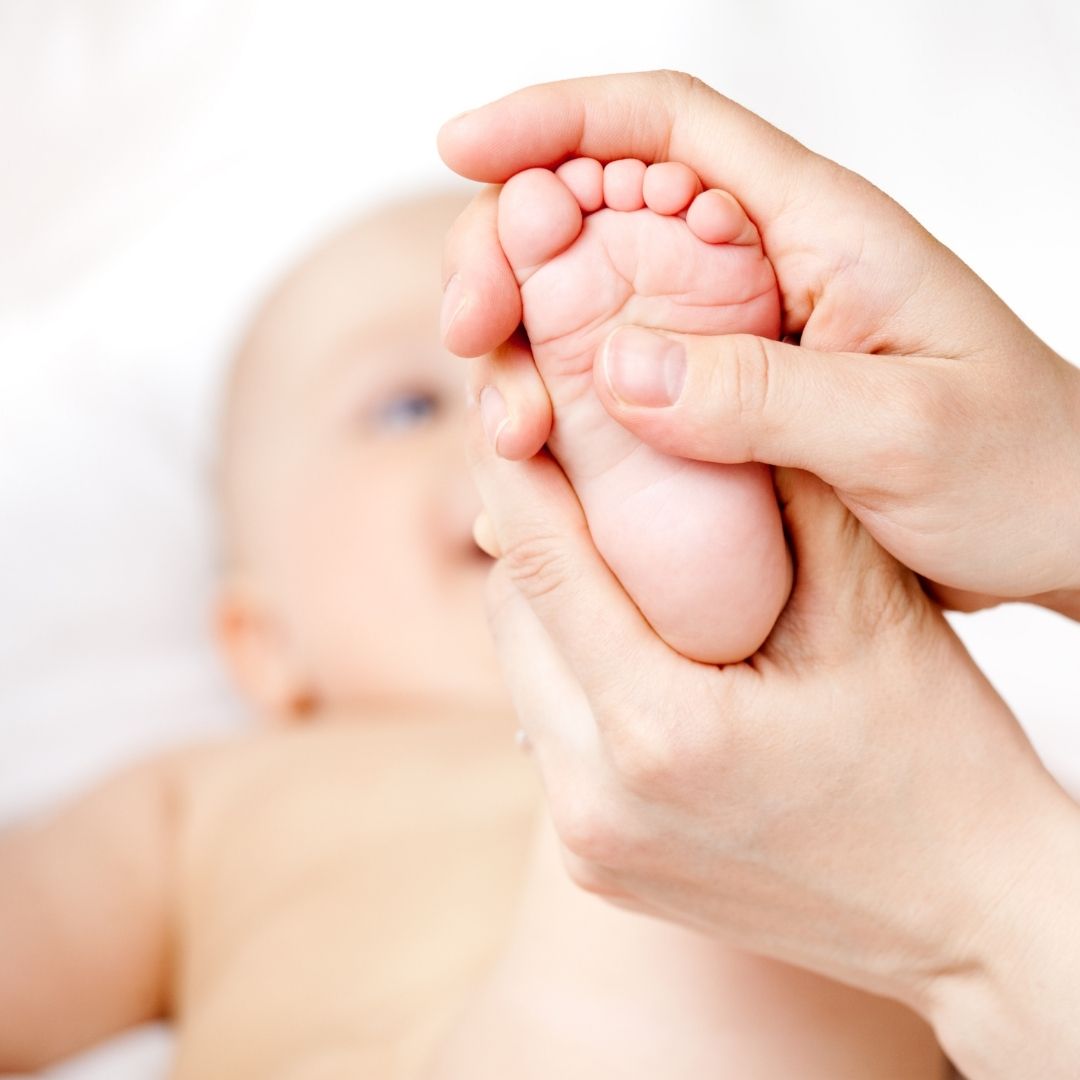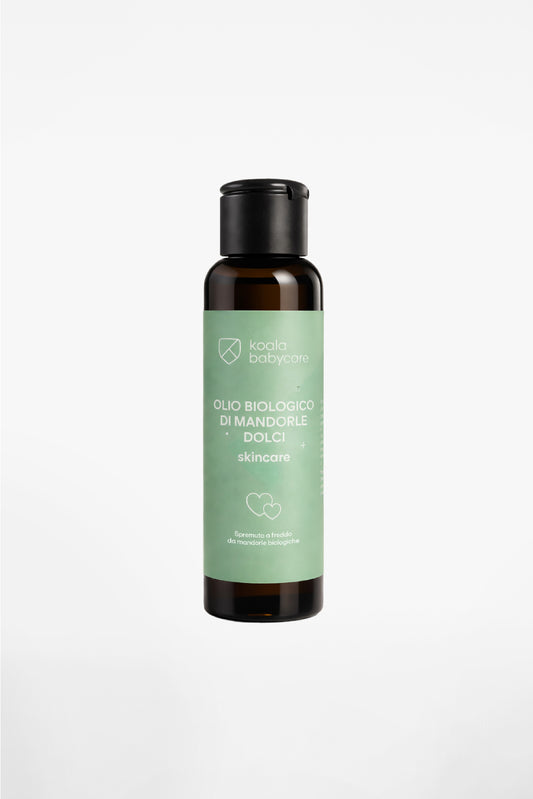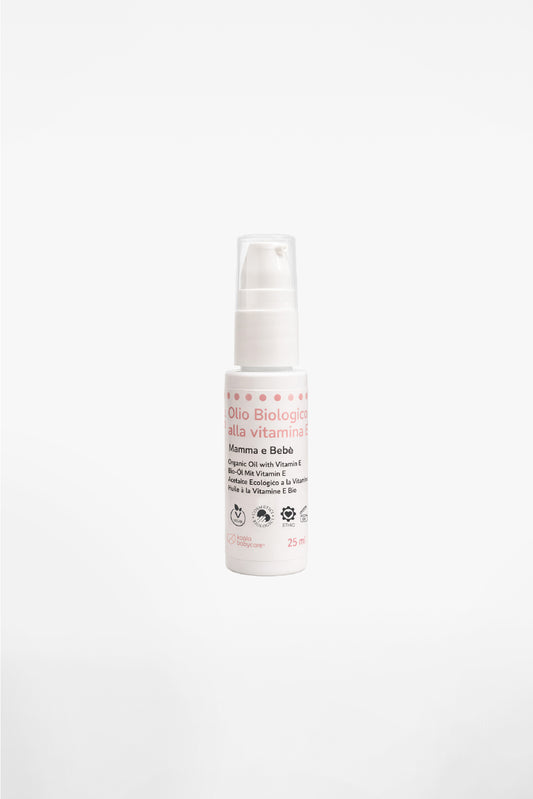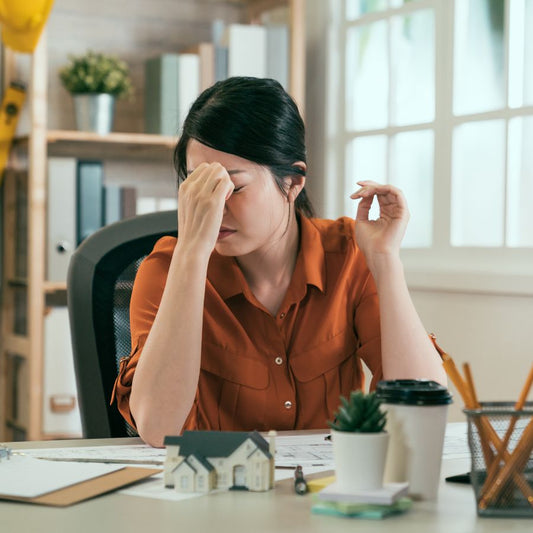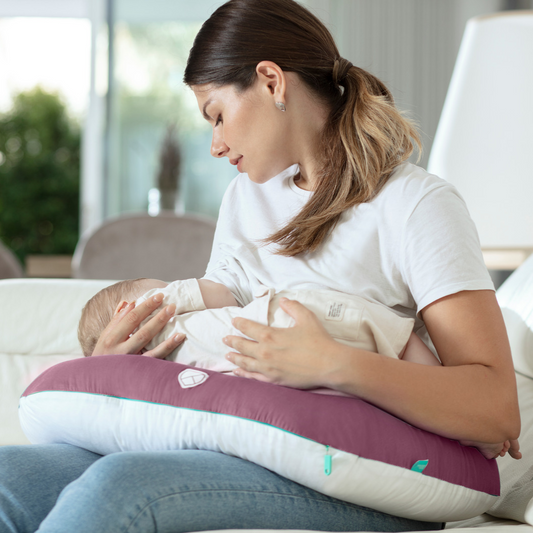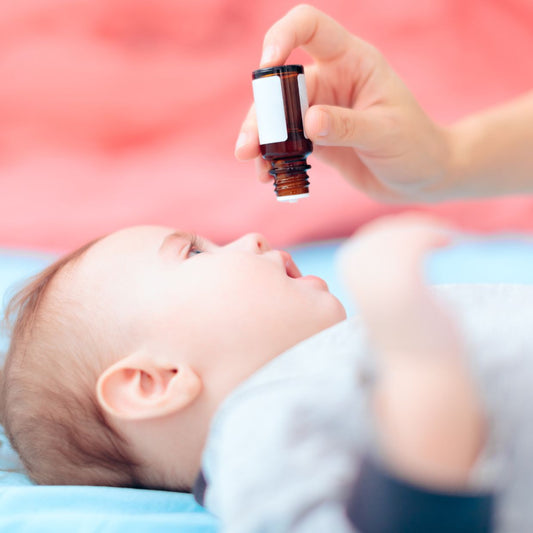Baby massage offers many benefits to the infant, on a physical, psychological, and emotional level. It helps them to develop body awareness and coordinate movements, to relax and develop a sleep-wake cycle more quickly.
Massage is also a perfect way to enhance your connection with your baby, as you learn to understand their subtle cues and communicate with them in a way which goes much deeper than words.
When and how can you start baby massage? Read on.
All the benefits of baby massage
Baby massage has countless pros from a bonding and physical point of view, especially for premature babies. Let's take a look in more detail.
It strengthens the parent-baby bond
Skin-to-skin contact with baby, such as holding, cuddling, and using a baby carrier wrap, promote parental bond.
A massage does this more than anything, as it enables us to communicate with love to our baby, to understand their needs and to soothe any tension. For a baby, massage is sensorial, pleasurable, and physical therapy.
Furthermore, massage is also good for parents: it helps them engage with their baby, understand their baby and recognise their cues, leading them to develop confidence in their parenting skills.
Stimulates nervous and immune systems
The stimulation of baby's epidermis through massage is important for physical development. It helps infants to coordinate movements and accelerates the process of myelination of the brain and nervous system. In simple terms, it accelerates connectionsbetween brain cells, which transmit information.
This stimulates the nervous and immune systems, also thanks to the fact that massage lowers stress hormone levels.
Relaxing effect on the baby
Infant massage boosts production of certain 'happy' hormones (endorphins, oxytocin, and prolactin) and lowers levels of stress-related hormones (ACTH, cortisol and norepinephrine).
When stressed, the pituitary gland produces ACTH hormone, which triggers production of new proteins, that are useful for learning and memory, in both the liver and brain.
When stress is topped with more stress, the body begins to shut down all sensory processes, which in turn hinders the cognitive process. Massage allows you to teach your baby how to physically relax when under stress.
Why is baby massage very important for premature babies?
Massage is especially important for premature babies, as it helps with nervous system development (hyperreflexia), "avoidance" behaviours, to decrease infant apnoea episodes and to increase quiet and active alert wakefulness states.
Massage helps soothe fussy premature infants and lower cortisol (stress hormone) levels. It also promotes weight gain, social and emotional development, and an overall state of well-being.
Lastly, massage also contributes to a reduction in stress in urine and an increase in serotonin levels.
Infant massage stimulates baby's senses
The skin-to-skin contact from a massage, arouses all five of a baby's senses. Starting with touch, for obvious reasons.
Visual connection between parent and baby during a massage is essential. Such contact proves to be a vital link.
It’s good to talk or sing to your baby during massage time, helping them to recognise your voice and to associate certain sounds with particular movements. It is important to keep repeating your baby’s name together with the word "Relax".
In the same way that an infant recognises the taste of their mum’s milk compared to that of other mums, massaging will help parents to discover the scent of their baby's skin.
When to massage your baby
A daily massage is most beneficial during the first six to seven months of a baby's life. After which, you can decrease the frequency to once a week.
There is no specific rule or moment of the day to massage a baby: you can do it in the morning, before or after their afternoon nap, before or after a bath. The most important thing is that it’s carried out in a warm and quiet place.
How to massage your baby
Lie your baby down on a pillow or blanket and sit in front of them. Relax your head and shoulders and make sure you are in a comfortable position. Breathe deeply and let go of all external thoughts as you devote yourself entirely to your baby. It’s just you and them.
Remove any jewellery you’re wearing on your hands or arms and undress your baby. Always explain to your infant that you’re about to perform a massage and ask for their permission.
It is easy to understand if your infant doesn’t want to be massaged just by observing them: they may lift their arms up as if protecting themselves, turn their face away from you, kick their legs, wave their arms and move their eyes in frenzy.
What should you do if your baby responds in such a way? Warm their body up or the environment around them and place your hands gently on their skin. If, despite this, they still don’t seem to be too sure about having a massage, just start anyhow, they’ll soon calm down.
What do you need to carry out an infant massage? All you need is oil, a towel, a blanket, or a pillow. The oil should be cold-pressed and vegetable, such as almond oil, which is gentle and light. In winter mustard oil keeps heat in and coconut oil cools in summer.
Infant massage is also useful for relief from minor ailments
Baby massage is also very useful to relieve symptoms of colic, colds and fever.
If they have a fever, wet your hands with warm water and keep your baby covered. The heat on the surface of their skin will evaporate the water, cooling the inside of their body.
If they have chest congestion, perform forward and backward movements on their chest and back with menthol or eucalyptus oil or using a small glass. It helps to expel mucus from the lungs.
If they have nasal congestion, Insert a drop of warm salty water or breast milk into each nostril and massage their face, aspirating any mucus.
Massage is also helpful for intestinal gas and colic, as it stimulates the gastrointestinal system to mature and function properly. Ask an experienced medical professional to show you the precise sequence of movements to be carried out on the baby's abdomen.
A warm bath, gentle massage around the anus area and small changes in the mum's diet are also recommended.
All that remains is to wish you and your baby a happy and relaxing massage!
Dr Martina Rossi
Freelance midwife and personal trainer for mums and mums-to-be. Dr Rossi organises courses in baby massage, paediatric first aid for choking, and pelvic floor rehabilitation.

